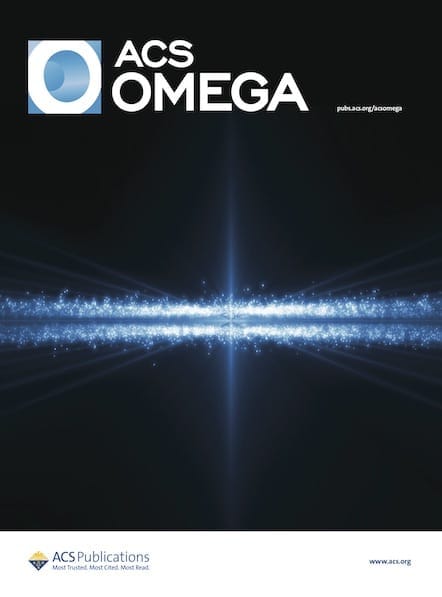
ACS Omega is a fully open access journal with a broad, multidisciplinary scope. It includes the scope of the more than 80 ACS Publications journals and some topics and types of results other ACS journals don’t publish. The journal welcomes both pure and applied sciences, as well as the interfacing areas of science, including biochemistry, chemical biology, materials science, nanoscience, pharmacology, geochemistry, industrial chemistry, environmental chemistry, chemical engineering— and more.
The journal focuses its editorial decisions on the research itself, not on the perceived evaluation of immediate impact.
The ACS Omega Co-Editors and the journal’s entire Editorial Board encourage you to submit your manuscript to ACS Omega.
Find out why you should publish open access with ACS Omega.
#1: ACS Omega provides high-quality editing and peer review led by a team of active researchers
Editorial decision-making at ACS Omega comes from a team of respected, active researchers whose scientific expertise represents the broad range of chemistry and related fields. At the head of this team are two Co-Editors-in-Chief:
- Professor Deqing Zhang, Ph.D., Director of the Institute of Chemistry, Chinese Academy of Sciences, Beijing, China
- Professor Krishna Ganesh, Ph.D., Director of the Indian Institute of Science Education and Research, Tirupati, India
Seventeen eminent associate, senior, and topic editors who lead research groups in twelve countries across four continents make up the rest of the ACS Omega editorial team.
This diverse editorial team follows the same thorough peer-review process as all ACS Publications journals— a process honed over the more than 140 years of scientific publishing since the launch of the Journal of the American Chemical Society (JACS) in 1879.
#2: ACS Omega serves a diverse, global community of researchers and readers
Like ACS Omega’s editors, its authors, reviewers, and readers span the globe creating a diverse international community of scientists sharing and discussing the newest research findings. It includes student researchers and Nobel Laureates, and investigators at universities and in industry.
When you publish a paper in ACS Omega, you contribute to this community, and its members see your research.
#3: ACS Omega provides rapid manuscript processing
If you accept a transfer to ACS Omega from another ACS Publications journal, you save the time it would take to rework your manuscript and submit it to another journal for consideration. This means you can share your results with the community as quickly as possible.
#4: ACS Omega is a fully open access journal and is indexed in all major databases
If your funder or institution requires you to publish your results in a fully open access journal, ACS Omega offers a CC-BY license option—which meets the most stringent funder requirements. The APC covers your choice of open-access Creative Commons license (CC-BY or CC-BY-NC-ND).
- Clarivate Analytics’ Web of Science—Science Citation Index Expanded database
- DOAJ (Directory of Open Access Journals)
- Google Scholar
- PubMed Central
- SciFinder®
- Scopus
These listings represent the most trusted databases in scholarly publishing and allow researchers to search and easily find relevant content using their favorite databases. In fact, on behalf of its’ authors, ACS deposits all in-issue published articles from ACS Omega automatically into PubMed Central, also searchable at PubMed.
#5: ACS Omega comes from a nonprofit society publisher
As a division of the American Chemical Society (ACS) and a nonprofit society publisher, ACS Publications shares and contributes to the Society’s overall mission of advancing the broader chemistry enterprise and its practitioners for the benefit of Earth and its people.
Article Publishing Charge (APC)
ACS Publications is committed to sustainable publishing— ensuring it has the resources to provide high-quality editing, organize a rigorous peer-review system, and keep pace with the latest technology for sharing research across the globe, while also ensuring researchers have the resources to share their results with the global scientific community.
ACS Publications sets the APC for open access articles according to this principle. The APC For ACS Omega includes every aspect of publishing an article as well as your choice of open access license. There are no separate submission charges, additional page charges, color charges, or other fees. Please note that the APC is subject to change—the latest prices can be found on the ACS Open Science webpage.
ACS Omega Authors Get a 1-Year Premium ACS Membership
Corresponding authors who publish open access with ACS Omega and aren’t current members also receive a one-year Premium membership to the American Chemical Society, joining the world’s largest society of chemistry professionals.
ACS members with a Premium membership package receive a long list of benefits, including:
- Meeting registration discounts. ACS members receive significant discounts on the registration fees for ACS’s Spring and Fall National Meetings and dozens of ACS Regional Meetings held across the U.S. each year.
- A C&EN subscription. ACS Members get a free subscription to Chemical & Engineering News and the C&EN Archives. C&EN has editors and reporters around the world covering news related to science and technology, business and industry, government and policy, education, and employment aspects of the chemistry field.
- Complimentary SciFinder® use. ACS Members get 25 complimentary SciFinder® activities for personal use per membership term. SciFinder® is a research-discovery solution that brings together the world’s largest, most reliable chemistry and science-related databases under a single interface. You can use it to search for chemical information on substances, reactions, and references from patents, journals, chemical suppliers, web sources, books, conferences, and more.
- LinkedIn Learning.Unlock access to thousands of expert-led, creative, business, and technology courses with LinkedIn Learning to help you achieve your personal and professional goals.
